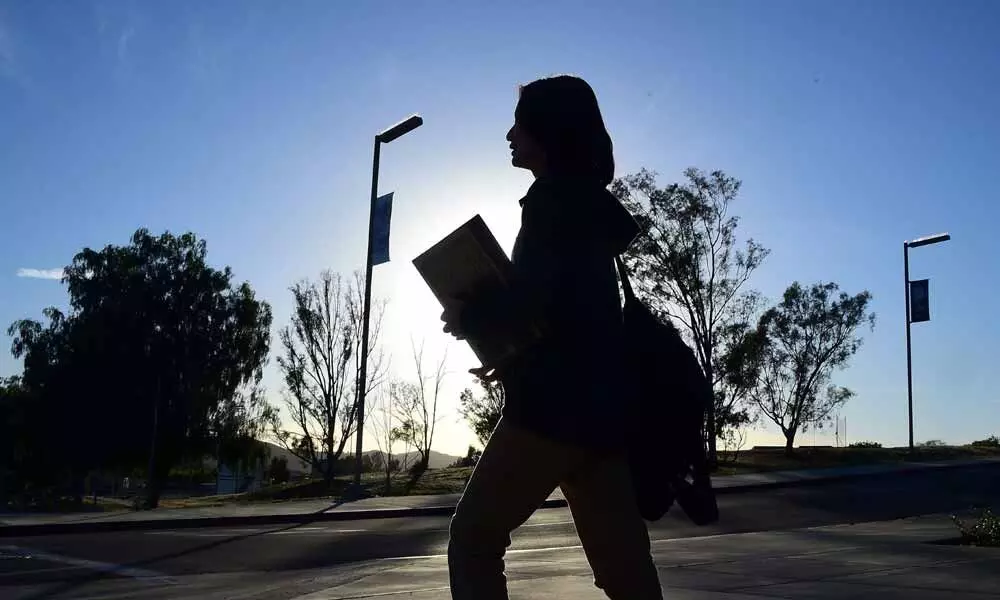Heartland Visa, Biden's new immigration concept
The people who leave are often the most talented, the problem is compounded; in the age of knowledge industries, companies don’t want to invest in places without talent. This is why government policy needs to help places, not just companies and individuals
image for illustrative purpose

A new pilot programme will help revitalize depressed areas of the country without creating an unreasonable burden on immigrants
President Joe Biden's big immigration bill includes a small pilot program for a very interesting idea: A visa that would send foreign workers to specific downtrodden places in the US When people first started suggesting this approach, I was opposed to it, but now I'm a wholehearted supporter.
Over the past few years, the Heartland Visa concept (named thus because more of the declining areas are in the middle of the country) has rocketed out of think-tank land and into the public policy discussion. The US Conference of Mayors has embraced it. So have prominent chief executive officers. The Trump era convinced many people that something needs to be done about regional inequality and decline, and skilled immigration is an easy place to start.
The reason I was initially skeptical of place-based visas was that it seemed like a restriction on freedom of movement. Americans have always prided ourselves on our ability to move across the country seeking to better our situations. To tie immigrants to a specific location felt alien and authoritarian - reminiscent of the hukou system in China, or even the internal passport system in the old Soviet Union.
I changed my mind when I learned the details of how Canada's provincial visa system works. It isn't like China or Soviet Russia at all. Canada's Provincial Nominee Programme gives work visas to foreigners who say that they want to settle in a certain province. While they are on that visa, they must work in that province (though they can of course travel anywhere in the country). After they get permanent residency, however - the equivalent of a US green card - they are free to move anywhere in the country.
That's not unlike the H-1B worker visa. Though H-1B holders are nominally tied to a specific employer, they can transfer to another company if they find one willing to sponsor them. Similarly, workers on a Heartland Visa could transfer to another location if they find someone willing to sponsor them. Or they could presumably switch to an H-1B if one is available, and move wherever that company is. And once they get a green card, of course, they could move anywhere they want; this is explicitly stipulated in the proposal for Heartland Visas, written by the Economic Innovation Group (a think tank).
So a Heartland Visa program wouldn't restrict mobility any more than the visa system we already have. Instead of being tied to a region, what would really happen is that visa workers would be nudged to live there. If they really wanted to spend a few years in Youngstown, Ohio, and then abscond for the bright lights of New York City as soon as they got their green cards, then fine; the country would certainly be no worse off as a result. But as the EIG proposal notes, during their initial years, visa holders "would build social networks and put down roots in their host communities." That would result in some durable increase in population and local talent for places that need it badly.
And many places do need that talent, very badly. Though a small handful of big coastal cities are experiencing problems with gentrification and displacement, a far larger number are in decline from population loss and declining investment. As economic activity has become more concentrated in the superstar cities and college towns, many places have seen their talented young people move away. And when half the young people leave, towns across America get hollowed out, dotted with half-empty neighborhoods and vacant boarded-up businesses, saddled with roads and sewage systems and electrical grids that they no longer have the tax revenue to maintain. And because the people who leave are often the most talented, the problem is compounded; in the age of knowledge industries, companies don't want to invest in places without talent.
This is why government policy needs to help places, not just companies and individuals. Proposals for doing this have included ideas such as moving government offices out of Washington. But the most powerful engine of local economic activity is private investment, and private investment tends to go where the workers are. This is why college towns are so successful. As the EIG report points out, skilled immigrants tend to be especially innovative and successful. If they can be nudged to locate en masse in declining regions, it will give companies an incentive to put their offices and research labs there. That investment, combined with cheap housing costs, might draw talented native-born people back from the cities as well, sparking a virtuous cycle of local revitalization. The shift to remote work could accelerate this trend.
Biden's bill would only provide 10,000 Heartland Visas. That small pilot programme won't be nearly enough to make a difference to US regions. But it will allow us to verify that the programme works, that both immigrants and the towns that recruit them are happy with the new arrangement, and that people don't just head for the coasts as soon as they get a green card. If it works, we can scale it up. (Bloomberg)

